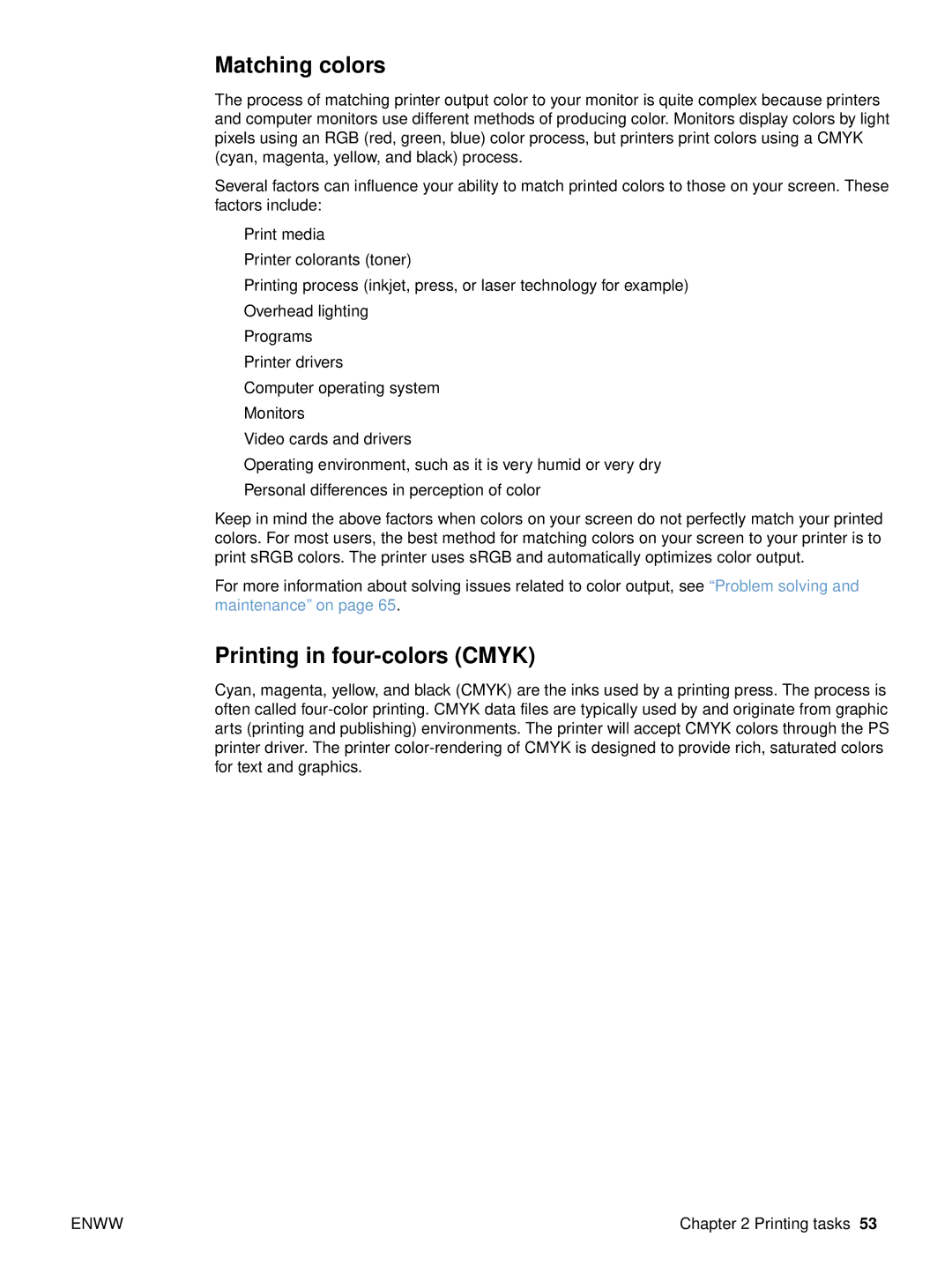Matching colors
The process of matching printer output color to your monitor is quite complex because printers and computer monitors use different methods of producing color. Monitors display colors by light pixels using an RGB (red, green, blue) color process, but printers print colors using a CMYK (cyan, magenta, yellow, and black) process.
Several factors can influence your ability to match printed colors to those on your screen. These factors include:
●Print media
●Printer colorants (toner)
●Printing process (inkjet, press, or laser technology for example)
●Overhead lighting
●Programs
●Printer drivers
●Computer operating system
●Monitors
●Video cards and drivers
●Operating environment, such as it is very humid or very dry
●Personal differences in perception of color
Keep in mind the above factors when colors on your screen do not perfectly match your printed colors. For most users, the best method for matching colors on your screen to your printer is to print sRGB colors. The printer uses sRGB and automatically optimizes color output.
For more information about solving issues related to color output, see “Problem solving and maintenance” on page 65.
Printing in four-colors (CMYK)
Cyan, magenta, yellow, and black (CMYK) are the inks used by a printing press. The process is often called
ENWW | Chapter 2 Printing tasks 53 |
